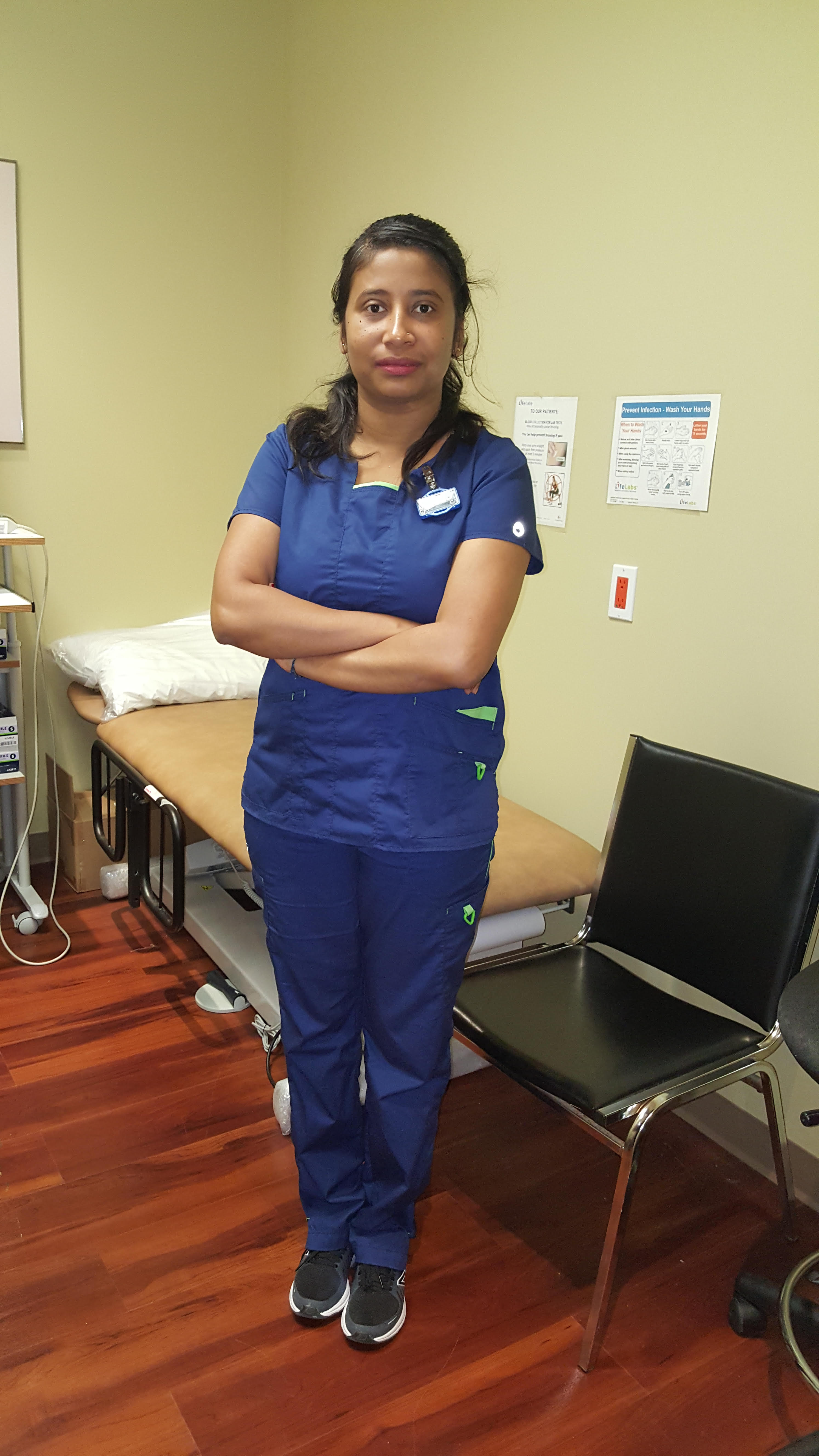What does it take for newcomers to Ontario to restart their careers?
For many, a key part of the answer involves learning the English language skills related to their employment field. As Abiramy Thivakaran learned, one of the best ways to develop those skills is through free language courses for immigrants offered by Occupation-specific Language Training, or OSLT (see sidebar for details).

Abiramy Thivakaran
“The OSLT course helped me get my professional career in Ontario off the ground. For immigrants, it’s a great way to understand the language aspects of employment and improve your career prospects.”
Abiramy moved from Sri Lanka to Scarborough in 2016 to be with her husband. She wanted to continue working as a medical radiation technologist (MRT), her occupation since 2012. She soon discovered the OSLT course, Workplace Communication Skills for Health Care.
Taking the course part time at Collège Boréal Toronto, Abiramy learned about the professional language and cultural dynamics of health-care workplaces such as hospitals, clinics and nursing homes.
“In health care, it’s very important to communicate in a professional way so that patients and colleagues understand you,” Abiramy says. “That’s what I learned in this course.”
The course taught how to interact clearly and competently with patients, clients, co-workers and supervisors. All relevant modes of communication were covered: in person, by phone and by email. Even small talk was addressed so that participants can feel comfortable taking part in informal conversation in the workplace.
Participants practised what they learned by completing practical assignments, engaging in role-playing exercises and delivering presentations to the class.
“We learned about using assertive communication to manage a conflict situation, about how to write a medical report, and how to present information to others in a clear and concise manner,” she says.
Abiramy’s classmates were internationally trained health professionals from countries such as Brazil, China, the Philippines and Thailand. She appreciated the opportunity to build professional relationships with others facing the same issues integrating into Ontario’s health-care workforce.
“It was a great chance to network with others, learn about their cultures and make friends,” she says. “It also provided more opportunities to practise and improve my language skills.”
Part of the training involved helping the participants strengthen their ability to navigate the job market and make the right impression on employers. Abiramy received support from Boréal’s employment services to create an effective resumé, and customize her cover letters for each job application. She also took part in mock job interviews so she could present herself optimally to potential employers.
After completing the course, Abiramy enrolled in the Radiological Technology bridging program for internationally educated MRTs at The Michener Institute. After completing the program, she successfully wrote the exam to become a licensed MRT. Soon after, Abiramy landed a job as an MRT at a radiology clinic.
“The OSLT course helped me get my professional career in Ontario off the ground,” she says. “For immigrants, it’s a great way to understand the language aspects of employment and improve your career prospects.”
Occupation-specific Language Training (OSLT) courses are free workplace communication training courses for immigrants. They are available full-time or part-time; classroom-based or online. These courses are offered at many Ontario colleges and cover a range of occupations in business, construction, health sciences, human services and technology. OSLT is funded by Immigration, Refugees and Citizenship Canada and coordinated by Colleges Ontario.






